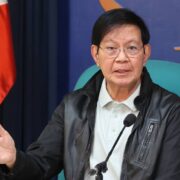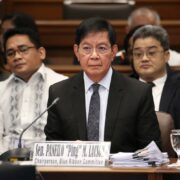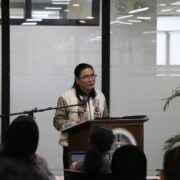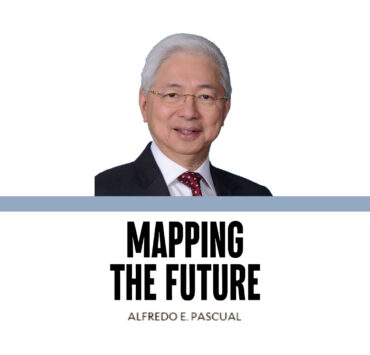Crackdown on fake PWD cards

The Bureau of Internal Revenue (BIR) warned last week that it will launch a nationwide crackdown on the sale and use of fake identification cards for persons with disabilities (PWDs), calling the practice a tax evasion scheme that has cost the government revenue losses of about P88.2 billion in 2023 alone. “People who sell and use fake PWD IDs are not only committing tax evasion, they are also disrespecting legitimate and compliant PWDs,” BIR chief Romeo Lumagui Jr. lamented. “The discount given by law to PWDs is for the improvement of their well-being and easing of their financial burden. It is not some common discount card that is accessible to the general public. Expect the BIR to run after fake PWD ID sellers and users.”
This followed a Senate committee on ways and means investigation into the proliferation and unscrupulous use of fake PWD cards. In the course of its probe, lawmakers heard odd stories encountered by restaurant owners ranging from “legally blind pilots” to couples claiming “conjugal disability,” obviously using fake PWD cards. Data from the Department of Health showed that as of Nov. 9 this year, there were 1.8 million registered PWDs in the country. However, Sen. Sherwin Gatchalian, head of the Senate panel, put the number of PWD cards circulating in the country at 8 million based on their own research and conversation with different establishments.
Exclusive use
The problem arose due to the attractiveness of using fake PWD IDs. Republic Act No. 10754, which amended the 2007 Magna Carta for PWDs, lists a host of benefits, including a 20-percent discount on essential services and goods aside from an exemption from the payment of the 12-percent value-added tax on certain goods. The discount is from all establishments on the use of services in hotels and restaurants; admission fees in theaters and places of culture, leisure and amusement; medicine purchases; medical and dental services in all private hospitals; fares for domestic air and sea travel, public railways, and skyways; and bus fares. The law also requires the provision of express lanes for PWDs in all commercial and government establishments. However, the key phrase in the law is that all these benefits are “for the exclusive use or enjoyment of [PWDs].”
A discount of as much as 32 percent is truly enticing considering the high cost of living today. This has given rise to people without any disability to get a PWD card and unscrupulous individuals who saw a demand to sell fake PWD IDs. The BIR admitted that the fake IDs are sold for as low as P350 each on the street and through online marketplaces, making them easily accessible.
Abuse of benefits
The government’s crackdown on the abuse of PWD benefits needs to address the problem on two fronts. The first is on the supply side, or the sellers of fake IDs. The privileges are available only to Filipino PWDs upon submission of an ID proving his/her disability from a local government unit’s persons with disability affairs office. The government needs to put up a central digital registry or database and create an automated system for easier and faster verification of PWD cards. This will require a major upgrade of the Philippine Registry for Persons with Disabilities that needs to be readily accessible to establishments.
The second issue is on the demand side. Under the law, persons with no apparent disability need to secure a certificate of disability issued by specialists or by appropriate physicians from the city, municipal or regional health offices or any recognized private medical institutions who have competencies to assess such disabilities. This gave rise to cases of unqualified persons conniving with their friends and relatives in the medical community to get the medical certification to get real PWD cards. The government therefore needs to also engage the medical community in its drive vs fake PWD cards.
Concerted approach
As with other crimes, the penalties associated with each transgression have successfully preempted their commission. It appears that individuals abusing PWD benefits are oblivious to the risks of violating the law, perhaps because they see that no one gets prosecuted. The government and its agencies therefore need to remind them that Section 46 of RA 7277 provides the following penalties for violators: For the first violation, a fine of at least P50,000 for the first offense or imprisonment for a minimum of six months, or both at the discretion of the count, and for subsequent violations, a minimum fine of P100,000 or imprisonment for at least two years, or both at the discretion of the court.
For erring doctors, the government can check if the provision in RA 7277 that empowers it to revoke, after due notice and hearing, “the business permit, permit to operate, franchise and other similar privileges granted to any business entity that fails to abide by the provisions of this Act” can be interpreted to apply to them. Losing one’s medical license is a grave risk that will make doctors think twice before issuing fake disability certifications.
The BIR knows that for its crackdown on fake PWD cards to succeed, it needs the assistance of key government agencies. Only a concerted approach will address this mess and minimize fraud. While working on this, prosecution and punishment of violators of the law will prove to be a very effective deterrent.





















